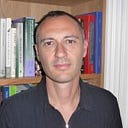Global Health Experience
A commitment to lifelong learning
May 2016
“The world as we have created it is a process of our thinking. It cannot be changed without changing our thinking” (Albert Einstein)
In the early 1990s, lyrics to a song by the strangely named band ‘The The’ struck a chord: “If you can’t change your world, change yourself. And if you can’t change yourself then change your world”. I have no idea whether the song-writer was familiar with Einstein’s works or musings, but the ideas behind both quotes came to mind when I spent a week last month in the Netherlands.
The primary reason for my stay in Bilthoven was as part of an international team tasked with peer reviewing the Dutch National Institute for Public Health and the Environment, Rijksinstituut voor Volksgezondheid en Milieu (RIVM). RIVM has a fine, hundred-year-plus history of excellence in science and public health, and a year ago the ministry agreed with the fifteen-hundred-strong institute to an external assessment to check on progress and consider any development needs. So, under the auspices of the International Association of National Public Health Institutes (IANPHI), a panel of experts was assembled from different European countries and the USA.
Forearmed well in advance with tomes of reading material — about the institute and its achievements — the panel was able to concentrate on two and a half days of intensive interviews with the executive team, national, regional and local stakeholders, plus board members from the Dutch National Academy of Science. On the final afternoon we presented our recommendations to the RIVM top-team.
Through the course of the peer review exercise, two important happenings stood out. First, there was never any doubt about the total commitment of RIVM’s leader and his team to learning from the process. It is not easy to have your organisation’s weaknesses exposed alongside its strengths, nor is it straightforward to have opportunities and threats scrutinised, sometimes in a way with which you perhaps don’t agree or even believe to be fair. But therein lies the impact of the external team’s freedom, and it is an absolute credit to RIVM to have approached the endeavour so openly.
The second happening was equally illuminating. Having interviewed many senior staff, the panel asked on the penultimate evening for a session — which hadn’t been programmed — with junior and mid-level scientists, to get a sense of the experience of working at RIVM from those at an early stage of their careers. That session proved extraordinary, with younger staff relaying similar kinds of problems to others, but feeling more positive about the ability to improve things. Does this represent lack of experience, or is it fresh thinking without the baggage of history?
*
An external peer review of a national institute provides a certain, very high level, opportunity to learn. Learning, however, can occur at different levels and in different ways. At a layer below this, institutional investigations around serious incidents aim to glean lessons learned and avoid similar events happening again. Then there’s group or team learning activities, leadership programmes, as well as individually tailored learning around professional needs, technical skills or areas of personal development.
But let’s go deeper, to the stripped-down level, the most basic of learning opportunities: the one-to-one interaction with another human being. Imagine the experience of treating each and every such interaction at work, whether with those more senior or more junior, as a chance to learn. This is harder than it sounds and requires a different kind of mindset. It involves sitting quietly, listening attentively and not being distracted. The coaching books use the phrase ‘active listening’, but the approach necessitates more than just an active component: it requires a combination of ‘listening with nothing on your mind’, being open-minded about what you are hearing, and a preparedness to be influenced by another’s perspective.
That’s just the beginning, though, as embodiment of the approach demands commitment and perseverance: a commitment to take each interaction and what you have heard seriously; and determination to persevere even when it feels like hard work and much easier to switch back to the old kind of one-to-one. Here’s a tip: practise having such sessions without taking any real-time hand-written notes — and remove the iPad from the equation completely. After all, how often do you truly need those filed-away notes? The impact will be that you are less preoccupied with your own thoughts, more in the present, and more focused on the quality and nature of the interaction, rather than being a conduit for transferring spoken words into written form. Longer-term, the nature of your relationships will change through demonstration of humility, engendering of respect, and the building up of trust. One proviso: it has to be authentic.
Most of us go into public health because we want to change the world, and the ability to do so effectively is enhanced by a willingness to learn. The likelihood of the peer review exercise proving fruitful to RIVM is heightened by their staff’s highly receptive spirit, strong desire to serve the Dutch people well, and broad-mindedness about change. Learning opportunities, however, abound in the working world, every hour of every day. The lyrics from ‘The The’ may sound inspiring but they are only half right: it’s not changing the world or changing yourself, but both. And that’s what Einstein saw: the world is created from our thinking, so if you want to be most effective at changing the world you need to change your thinking.
